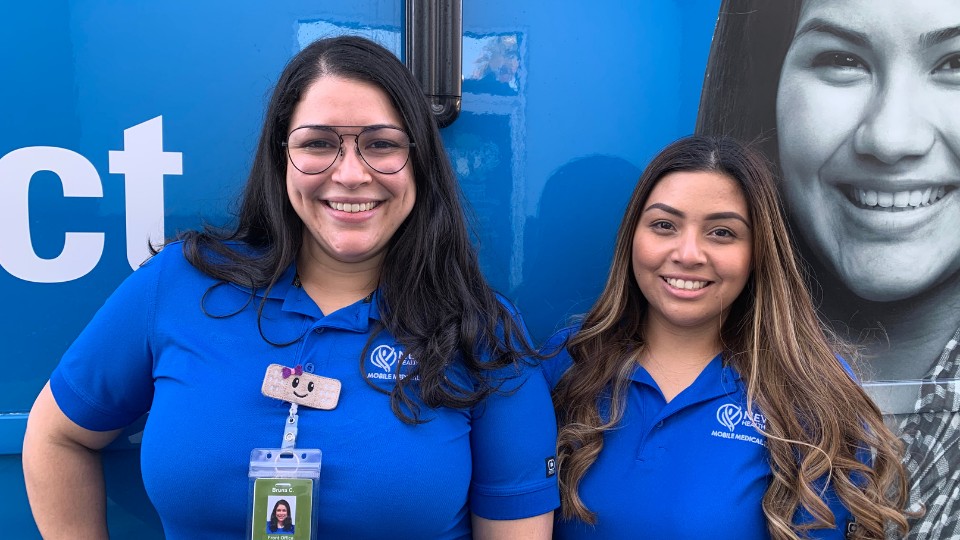Women immigrants are among the unsung heroes of this country’s response to COVID-19. As a major component of the healthcare workforce, women immigrants have been invaluable as the country struggled to respond to the greatest health crisis of our time. A majority of these health providers are women of color whose unique strengths to this work are critical to serving diverse communities.
With healthcare becoming more responsive to the cultural and linguistic needs of patients, foreign-born providers are playing a critical role. Immigrant providers step in with language skills, cultural knowledge, and empathy that helps better advance patient care and build trust with diverse communities. According to the Migration Policy Institute, women accounted for 75% of the 2.6 million foreign-born healthcare workers in 2018.
Many immigrant healthcare workers are women of color, serving similar communities. But during the pandemic, working in the service of communities of color has made them more vulnerable to the effects of COVID-19. Healthcare workers of color are five times more likely to test positive for COVID than the general population, and nearly two times more than white healthcare workers.
Many of Children’s Health Fund clinical partners work in historically underinvested communities that have a shortage of healthcare workers. These ethnically, linguistically, and racially diverse communities, both urban and rural, need providers who can communicate with patients and relate to patients’ concerns and situations, especially those who are undocumented immigrants. “Through their experiences, they are able to create a natural bond with immigrant families. This allows them to identify needs and share much-needed resources with families who need them,” shares Nurse Practitioner Pam Girgis of the mobile medical clinic run by Children’s Health Fund partner Nevada Health Centers (NVHC).
NVHC Medical Assistant Dulce Juárez Álvarez can relate to the instability faced by patients who are undocumented immigrants. She immigrated from Sonora, Mexico when she was three years old. “We were constantly moving from state to state. There was a time when I missed a year of school because my mom was working as a farmworker, and I had to stay with her and help.”
Dulce understands first-hand the importance of her role to bring healthcare to marginalized communities and immigrant families on the mobile clinic. “We could not get insurance and were not able to apply for Medicaid or any government help since we did not have a social [security number] or any other identification. I…do not recall seeing a pediatrician, dentist, or any medical provider growing up. There is no way my mom would have ever been able to afford this care.” This unfortunate reality is faced by many immigrants who, aside from not having insurance, also fear institutions that could deport them because of their legal status.
Like Dulce, Bruna Carrera, the front desk representative at NVHC, also immigrated with her family from her home country at a young age. “Her care and compassion are infectious; children, families, and youth immediately feel comfortable sharing their needs and fears with her,” says Pam, who supervises Bruna, a Brazilian.
Bruna’s impact goes beyond her presence at the front desk. Her language skills and cultural knowledge have actually attracted more patients to the clinic, a testament to the ability of foreign-born providers to build bridges to healthcare for immigrant communities. “Since Bruna has joined our team, the Portuguese-speaking population has increased exponentially and word of mouth has traveled among our uninsured, immigrant families of the care and compassion found on the mobile clinic,” explains Pam.
Like many immigrant children she sees, it was hard for Bruna to envision a path to success in this country without legal status. “When I was in high school, my classmates spoke of college and what they would do after school and about getting to drive. These were all the things I could not do! It was sad knowing I would not be able to attend college or get a job. I worked hard for good grades but many times I wondered what’s the point.” Today Bruna and her family are legal citizens.
Both Bruna and Dulce have accomplished much through their personal determination, but this does not discount the structural barriers placed on immigrants that often deny them basic rights and prevent many from reaching their dreams. “I know I am not done yet. One day I will become a registered nurse,” affirms Dulce. For immigrants like her, structural barriers include anti-immigrant policies, discrimination in receiving social services, and more–often stemming from xenophobia and racism.
Immigrant women are a key part of the healthcare workforce and are instrumental in addressing provider shortages in our healthcare system. As Congress and the Administration move to consider plans to reform our immigration policies, the needs and roles of these women should be considered. The stories of immigrant healthcare workers are a poignant reminder of how urgently we need to do this.
We honor and salute these and all incredible women immigrant healthcare workers for everything they have done to keep us safe under unprecedented circumstances during this epic health crisis.








